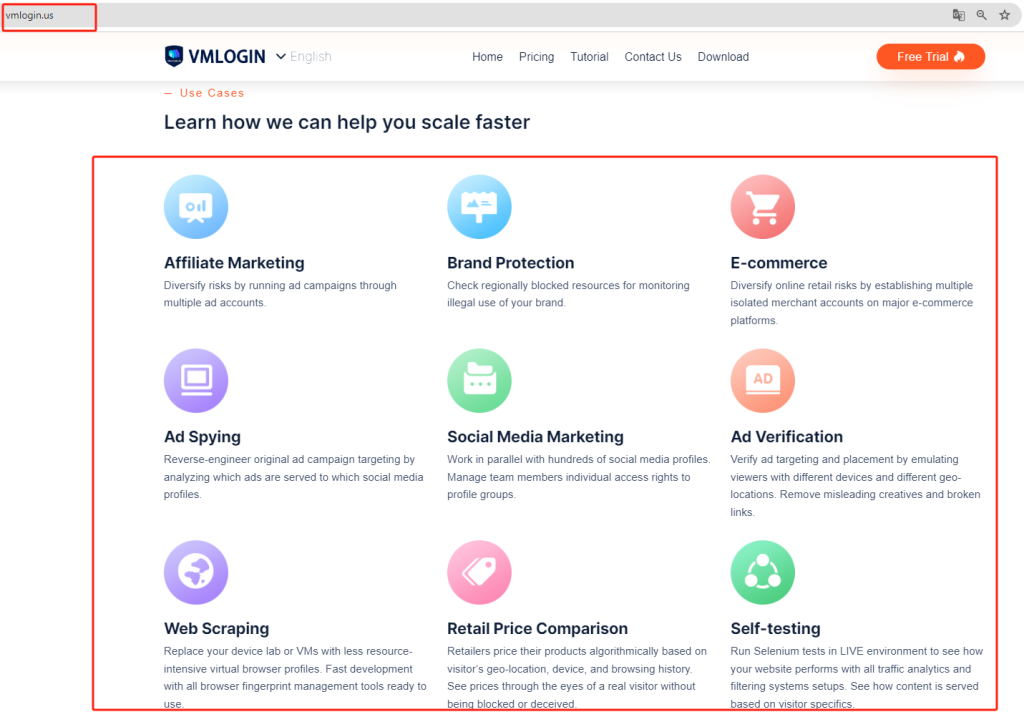Using a fixed IP to manage multiple stores is an important strategy among Amazon sellers. Fixed IPs are critical in ensuring stable network connectivity and identification, helping to improve store credibility and security, as well as helping sellers better manage multiple stores. Next, we’ll explore fixed IPs, the benefits of multiple stores, and the role of e-commerce browsers.
I. Key to Fixed IP:
A fixed IP is an IP address that is permanently assigned to a specific device or network on the Internet. In the multi-store operation of Amazon sellers, it is crucial to use a fixed and independent IP for each store.
1. Improve store stability: Fixed IP ensures stable network connection, avoids network fluctuation and instability caused by frequent IP changes, and improves online stability and reliability of store and business transactions.
2. Identification: Fixed IP can help the Amazon system more accurately identify the seller’s identity and reduce the identity confusion caused by IP changes, which is conducive to building trust and maintaining the credibility of the store.
3. Security enhancement: Frequently changing IP may be regarded as abnormal behavior by the system, and fixed IP helps reduce the risk of being banned.
4. Prevent account association: If multiple accounts share the same dynamic IP, it may lead to an association between accounts and cause account banning, while fixed IP can ensure the independence of each account.
II. Benefits of Multi-Store:
Multi-store is a strategy where a seller owns and manages multiple stores on Amazon. The benefits of multi-store include:
1. Expanding market coverage: by owning multiple stores, sellers can cover a wider market, attract more different types of consumers, and improve sales opportunities and performance.
2. Spreading the risk: Just like the theory of not putting eggs in the same basket, multi-store running can spread the risk among multiple stores, so that when one store encounters a problem, the other stores can still operate normally, reducing the overall risk to the seller, and also reducing the loss.
3. Increase competitive advantage: Through multi-stores, sellers can test different product combinations, pricing strategies, and marketing tactics to better understand the market and improve their competitive advantage.
III.The Role of VMLogin Ecommerce Browser:
VMLogin E-commerce Browser is a browser tool specialized for e-commerce sellers, which can help sellers manage multiple stores and conduct e-commerce activities more efficiently.

1. Multi-account management and account isolation: the e-commerce browser can realize multi-account simultaneous login and management on one computer, which is convenient for sellers to manage the operation of multiple stores and work in multiple windows, and the browsing environment and data of each account are independent, and the accounts do not interfere with each other before.
2. Privacy protection: With privacy mode, automatic clearing of browsing records and encrypted storage and uploading of data, it protects the data security of sellers’ stores.
3. Automation function: VMLogin’s automation allows you to perform repetitive tasks automatically, freeing up your hands and improving work efficiency;
4. Fixed IP settings: Each account and store can set an independent and fixed proxy IP to ensure IP stability and prevent multi-store association.
5. Simulated browsing environment: Modify and disguise the browser fingerprint parameters to simulate different devices and reduce the risk of being monitored by the platform due to abnormal operations.

To summarize, fixed IPs are crucial for Amazon sellers to conduct multi-store runs, which can lead to broader market opportunities and competitive advantages. However, it is difficult for sellers to manage and operate multiple stores efficiently without the combination of using an e-commerce browser, such as VMLogin.
Currently, VMLogin offers a free trial and you can enjoy its features by signing up!


